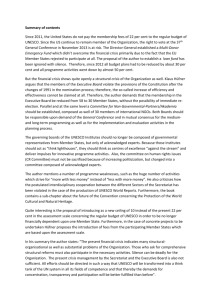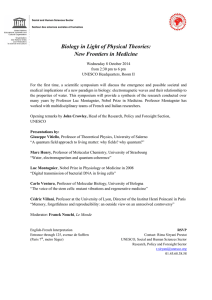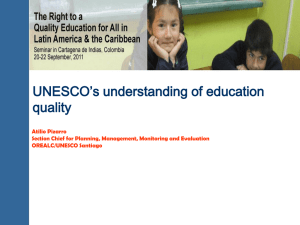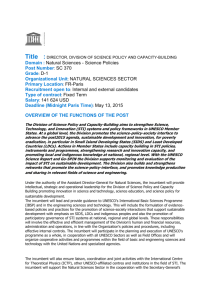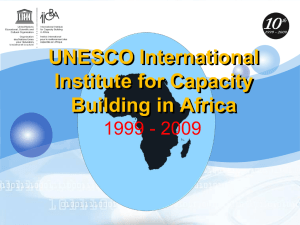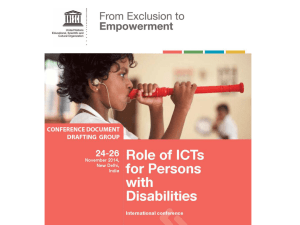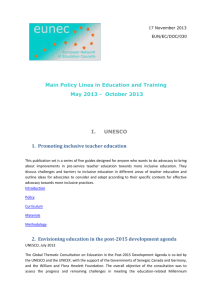Ms Maria-Ekaterini Papachristopoulou-Tzitzikosta
advertisement
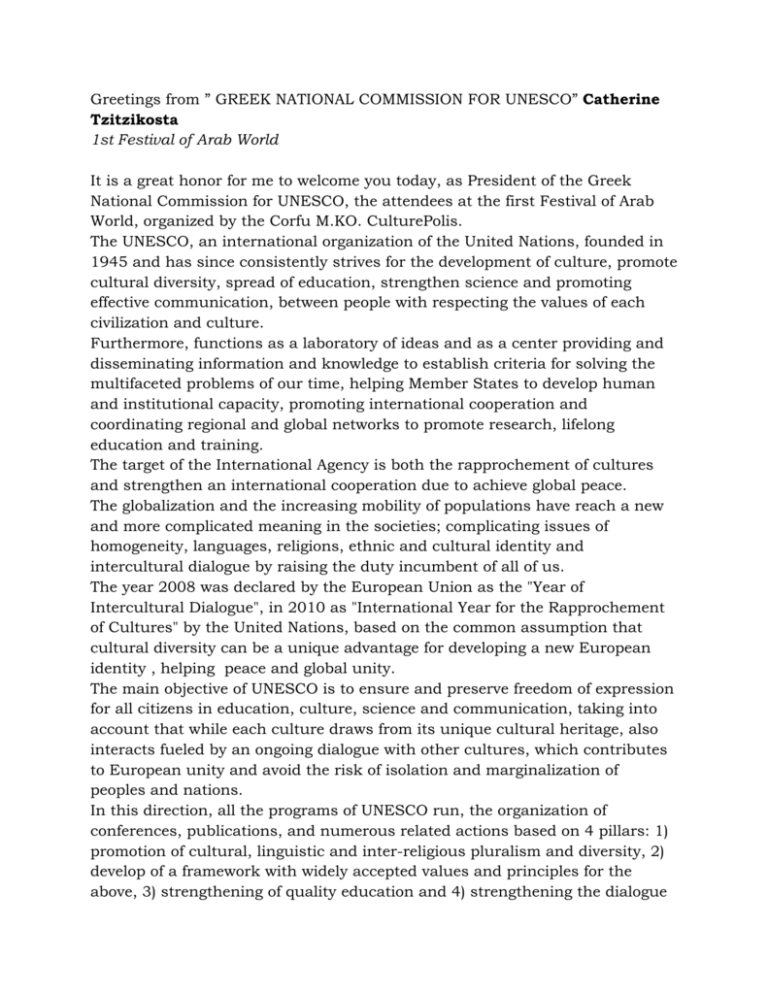
Greetings from ” GREEK NATIONAL COMMISSION FOR UNESCO” Catherine Tzitzikosta 1st Festival of Arab World It is a great honor for me to welcome you today, as President of the Greek National Commission for UNESCO, the attendees at the first Festival of Arab World, organized by the Corfu M.KO. CulturePolis. The UNESCO, an international organization of the United Nations, founded in 1945 and has since consistently strives for the development of culture, promote cultural diversity, spread of education, strengthen science and promoting effective communication, between people with respecting the values of each civilization and culture. Furthermore, functions as a laboratory of ideas and as a center providing and disseminating information and knowledge to establish criteria for solving the multifaceted problems of our time, helping Member States to develop human and institutional capacity, promoting international cooperation and coordinating regional and global networks to promote research, lifelong education and training. The target of the International Agency is both the rapprochement of cultures and strengthen an international cooperation due to achieve global peace. The globalization and the increasing mobility of populations have reach a new and more complicated meaning in the societies; complicating issues of homogeneity, languages, religions, ethnic and cultural identity and intercultural dialogue by raising the duty incumbent of all of us. The year 2008 was declared by the European Union as the "Year of Intercultural Dialogue", in 2010 as "International Year for the Rapprochement of Cultures" by the United Nations, based on the common assumption that cultural diversity can be a unique advantage for developing a new European identity , helping peace and global unity. The main objective of UNESCO is to ensure and preserve freedom of expression for all citizens in education, culture, science and communication, taking into account that while each culture draws from its unique cultural heritage, also interacts fueled by an ongoing dialogue with other cultures, which contributes to European unity and avoid the risk of isolation and marginalization of peoples and nations. In this direction, all the programs of UNESCO run, the organization of conferences, publications, and numerous related actions based on 4 pillars: 1) promotion of cultural, linguistic and inter-religious pluralism and diversity, 2) develop of a framework with widely accepted values and principles for the above, 3) strengthening of quality education and 4) strengthening the dialogue on sustainable development. Furthermore, UNESCO, plays a catalytic role for the protection and effective implementation of human rights with emphasis on the following areas: awareness of people strengthening and coordinating partnerships between governmental and non governmental institutions at national, international and regional level advice and expertise in Member States In its fight against discrimination, UNESCO, through the Education for Human Rights, working to ensure the full exercise of human rights, reduction of sterile nationalism and religious intolerance, addressing poverty, exclusion and of inadequate access to health services and education. At the same time, promotes research to curb the phenomenon of violence and develops regional projects, implemented in both the primary and secondary schools, aimed at transforming the educational policies on human rights. The main object of the programs in the organization is the learning process focuses on the acquisition of values, attitudes and skills necessary to meet the challenges that arise in modern societies. The Greek National Commission for UNESCO, aiming to highlight the various aspects of Greek culture, leading to mutual understanding, mutual respect and osmosis, supports the first World Festival Arab belief that through crosscultural perspective, achieving the acquaintance with ourselves and the respect in what is not ours. Conquered a common culture, the culture osmosis of cultures and thus the peaceful coexistence of peoples. At this point I would like to point out that in the Greek National Commission for UNESCO operates 7 Seats UNESCO, 3 of which deal with human rights and intercultural dialogue: 1) UNESCO Chair on Education for Human Rights, Democracy and Peace at the Aristotle University of Thessaloniki (AUTH), the head teacher, Mrs. Dimitra Papadopoulou 2) UNESCO Chair for Human Rights, Democracy and Peace, University of Panteios, Social and Political Sciences, headed by the professor, Mr. Stelios Perrakis 3) UNESCO Chair for "Multicultural policy for an active and inclusive citizenship", University of Macedonia, headed by Prof. Mrs. P. Naskou Perrakis. In a period that too many people like to underline the elements supposed to differentiate our cultures, UNESCO is opposed to the confrontational logic, promoting and utilizing the elements that unite cultures for the benefit of the global community through an open, substantive dialogue based on respect for each cultural values and civilization. This dialogue, however, requires knowledge, real knowledge of the cultures and traditions that will allow to all the people to coexist in harmony, prosper, create and envision. The world needs us now, more than ever to ensure sustainable development based on mutual respect between cultures, to respect human rights, respect for the environment, solidarity and communication. I wish you success in your future initiatives.

